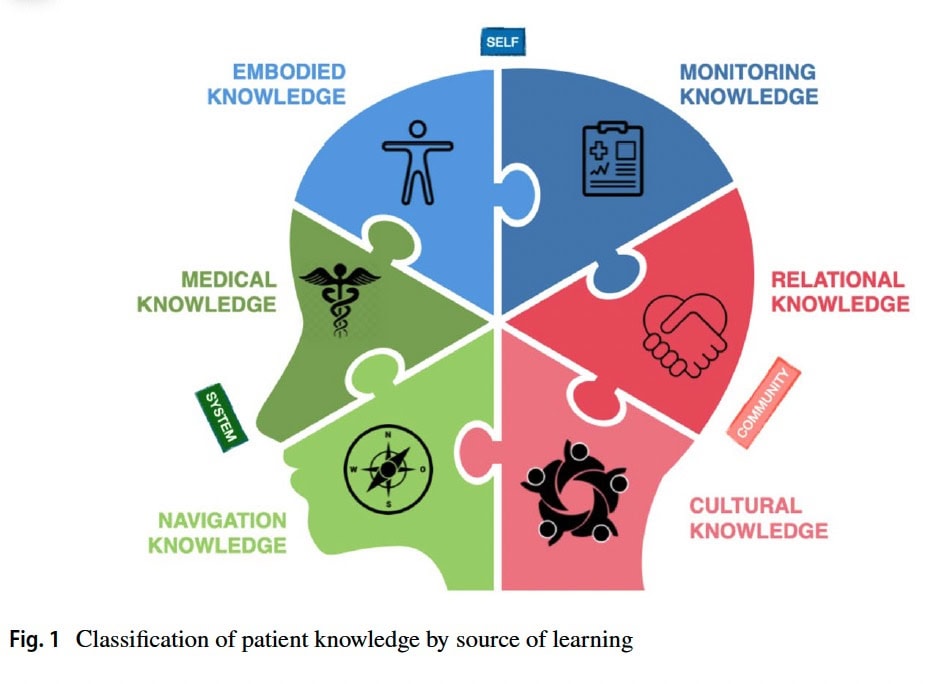Patients’ experiential knowledge is increasingly documented as a valid form of knowledge in the health sector and is often said to be a source of valuable information to complement the knowledge of health professionals.
Although this increased recognition is outlined in the health science literature and formalized in certain organizational and clinical contexts, it remains difficult for various actors of the health ecosystem to contour the different forms of knowledge patients acquire through their experience as well as to consider them as essential in co-building care plans and as an asset to build care relationships. The aim of this review is twofold:
(1) to challenge the dominant model of knowledge in medicine and healthcare by making the various forms of patient knowledge more explicit and tangible and
2) to provide a better understanding of what experiential knowledge consists of by classifying the various forms of knowledge patient acquire, develop, and mobilize throughout their care journey.
A narrative review allows to classify six types of patient knowledge according to their source of learning: embodied, monitoring, navigation, medical, relational, and cultural knowledge. The three main sources of learning, namely the self, the system, and the community grounds patients’ learning process in their health journey.
>> Consulter en ligne
>> Télécharger le PDF


